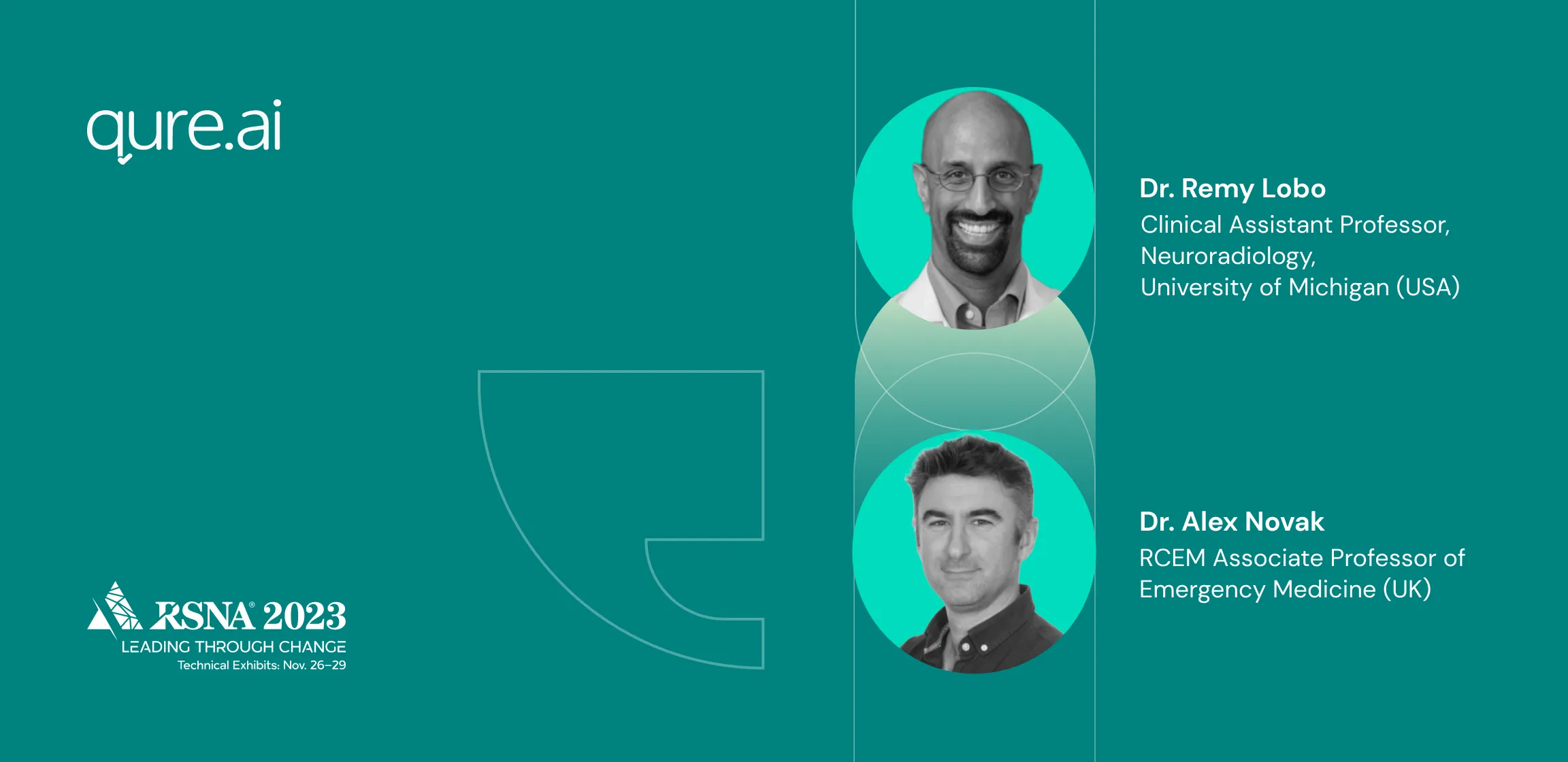At RSNA 2023, Dr. Remy Lobo, Clinical Assistant Professor of Neuroradiology at the University of Michigan, and Dr. Alex Novak, RCEM Associate Professor of Emergency Medicine, discuss the impact of AI in neuro-critical radiology. Hosted by Qure.ai’s Dr. Pragnesh Pokar, they also chat about how AI's growing presence in radiology, with 75% of over 500 FDA-cleared AI algorithms now targeting this field, is revolutionizing neuroradiology.
Back
Introduction: This session, led by experts Dr. Remy Lobo and Dr. Alex Novak, focuses on the transformative role of AI in neuro-critical radiology, highlighting its potential to enhance efficiency, reduce errors, and improve patient care.
Main Synopsis of Discussion: The talk emphasizes how AI enhances diagnostic accuracy and streamlines workflows in neuro-critical settings, offering a new perspective on radiological practices. It covers AI's applications in neuroradiology, including worklist prioritization, lesion detection, anatomical segmentation, and more, encompassing a range of diseases from neurodegeneration to trauma.
Key Points:
- AI as a Tool for Triage and Workflow Efficiency in Neurocritical Care: Both Dr. Novak and Dr. Lobo emphasized the importance of AI in triaging neuro-critical cases, particularly in emergency departments. AI applications in neuroradiology help in prioritizing urgent cases like strokes and hemorrhages, thereby enabling faster and more effective patient care. AI aids in identifying 'stat-stat' cases among a plethora of imaging studies, enhancing the responsiveness and decision-making speed of medical professionals.
- AI in Stroke Management and Integrated Healthcare Teams: The discussion highlighted AI's critical role in stroke management, especially in optimizing decision-making for thrombectomy versus thrombolysis. AI facilitates quicker image processing and interpretation, which is crucial in time-sensitive conditions like strokes. Moreover, AI's potential in fostering better communication and coordination among integrated healthcare teams, including emergency physicians, neurologists, and radiologists, was noted as a significant advancement.
- The Future of AI in Neurocritical Care and Radiology: Both speakers expressed a vision for AI that includes advanced quantitative imaging analysis and better integration with medical records and PACS systems. They foresee AI not only aiding in image interpretation but also in extracting useful information from extensive medical records, thereby allowing radiologists to focus more on image analysis and less on administrative tasks. The wish list for AI's future includes more robust, efficient, and diverse functionalities, ensuring that AI is a valuable adjunct to, rather than a replacement for, human clinicians and radiologists.
Conclusion: The session concludes with an optimistic view of AI's future in neuro-critical care, emphasizing its potential in improving patient outcomes. It highlights AI's role in detecting urgent findings like intracranial hemorrhage and its effectiveness in reconstructing diagnostic-quality images.
